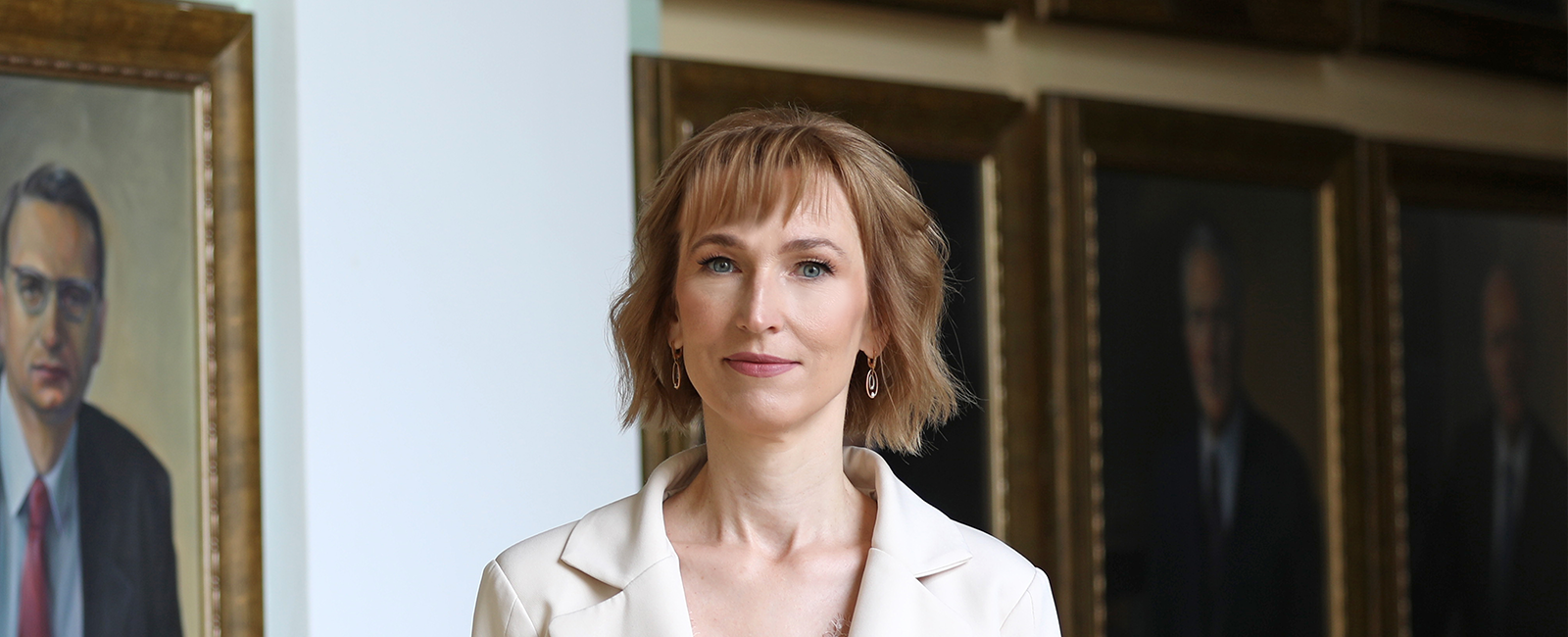Nataliia Shakhovska, professor and corresponding member of the National Academy of Sciences of Ukraine, spent her first hundred days as rector of Lviv Polytechnic engaged in intensive internal communication, strategic planning and laying the groundwork for future changes. In an interview, the head of our University spoke about the challenges, achievements and vision for the development of one of Ukraine’s leading technical universities.
One of the key priorities of the new management has been to improve interaction between the various departments of the University.
― I believe that until now, the biggest drawback of the Polytechnic’s activities was that each department focused on its own tasks, and interaction between different departments was quite limited. This focus on individual tasks prevented them from addressing broader, global challenges, explains Nataliia Shakhovska.
The creation of interdisciplinary platforms has become an important step towards overcoming this problem:
― The formation of a platform where representatives of different departments can communicate and collaborate to solve common problems using different approaches is extremely promising and essential. A recent example is the newly established aerospace hub, which unites mechanics, computer scientists and radio engineers to work together on a common task.
During the first hundred days of Nataliia Shakhovska’s rectorship at Lviv Polytechnic, a number of important agreements were signed, opening up new opportunities for our University. The Rector is particularly proud of the results of this work:
― We have achieved very good results from signing the agreement with Karazin University. Since the framework agreement was signed, a series of meetings at the level of institutes and department heads has already taken place, and the faculty themselves are actively communicating to foster collaboration.
Regarding cooperation with American partners, Nataliia Shakhovska notes:
― Collaboration with the University of Florida was previously only at the college level, but it has now expanded to the entire Polytechnic. Cooperation with Brave1 had been largely informal, at the level of individual contributors, since Lviv Polytechnic, as an institution, could not directly fulfill Brave1’s orders. Signing the agreement has now lowered the entry barrier for implementing such projects.
During this time, special attention was also paid to cooperation with countries that support Ukraine in its fight against the Russian aggressor.
― Speaking of the current geopolitical situation, Ukraine initially showed little interest in Latin American countries, and Russia took advantage of this. For example, the Republic of Guatemala is one of the few countries in this part of the world that is loyal to Ukraine and supports Ukraine in its war against the aggressor. Therefore, it would be a mistake not to take advantage of this opportunity and not to establish friendly communication with Guatemalan universities and representatives of big business. I believe that this will enable us, first, to attract students, because Ukraine is highly regarded in Guatemala, and second, to expand opportunities for our scientists to work in new areas, explains the rector.
Lviv Polytechnic is also developing a system of representative offices abroad, starting with the use of Ukrainian embassies for educational purposes. In particular, there is an agreement with the Ukrainian ambassador in Warsaw that allows Lviv Polytechnic to recruit Ukrainian students living abroad and teach them on the embassy premises.
The concept of ambassadors is also being developed:
― Another initiative we are working on is the so-called Lviv Polytechnic Ambassadors program. This primarily involves graduates living abroad who promote Ukraine and Lviv Polytechnic in their host countries.
Given the current challenges, our University is actively developing cooperation with the military.
― Meetings with the military are important to us, first and foremost, for patriotic reasons. Agreements have been made for veterans to hold smaller, more personal meetings with students to foster closer connections between them and the armed forces, says the Rector.
